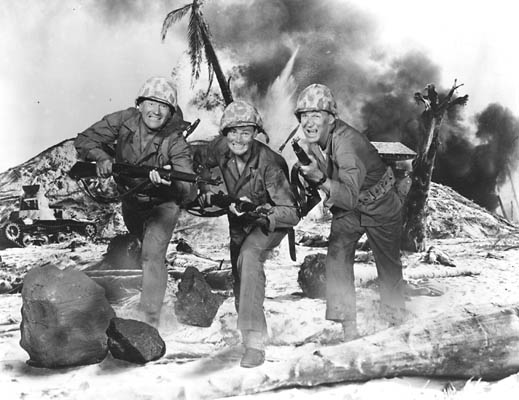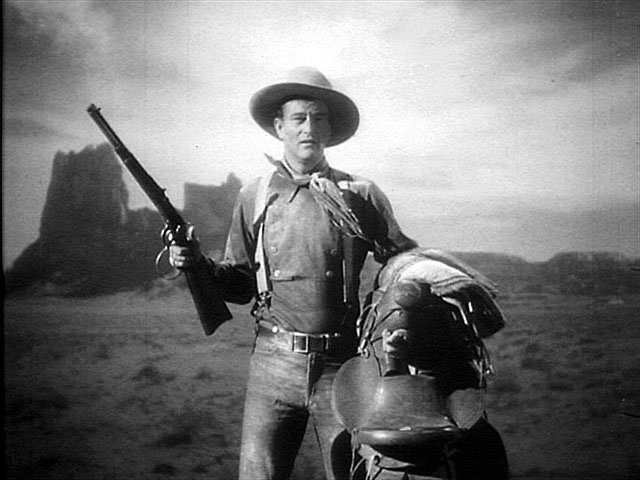Triumph of Celebrity and Death of Literacy
 •
by
•
by Silas Soule

Note: Hiyo. The approach I typically take to "playing" the media module in eRep is throw together some screed based on whatever it is I happen to be reading at the moment and try to make it sound like it has something to do with eRepublik.
This has two advantages (for me). First, it sometimes creates an interesting, if twisted, perspective on the game itself. Secondly, it creates the illusion that I am some kind of braniac, which I find amusing.
However, this time (reading Chris Hedges' Empire of Illusion, in case you were wondering) I am having trouble making up a direct relationship to the game, so I'm just going to splat this stuff out here. But to be on the safe side, please assume that any references or allusions to to up-coming Presidential elections apply in a dual sense.
Oh. And also please note that any implied metaphors between professional wrestling and eRepublik, particularly during election cycles, would be idle conjecture, but if you want to go there, I won't stop you.
XXX,
PQ
The Triumph of Celebrity and the Death of Literacy
There used to be folk heros, not manufactured ones...
The Ballad of Pretty Boy Floyd

These types of heros fought the law and died with their boots on, but they weren't John Wayne cowboys...
The Ballad of Joe Hill

In fact, John Wayne was jeered and booed by injured veterans at a hospital in Hawaii, exactly because they knew he was a fake who had never actually seen combat...
The Ballad of Ira Hayes

We had fed the heart on fantasy,
The heart's grown brutal from the fare.
-- W. B. Yeats

The story-lines of the World Wrestling Federation provide a fascinating barometer of the state of American literacy. The bouts are stylized rituals. They are public expressions of pain: a fervent longing for revenge. The lurid and detailed sagas behind each bout, rather than the actual wrestling, are what drive crowds to a frenzy.
The success of professional wrestling, like most entertainment that envelops post-modern American culture, lies not in fooling us that these stories are real. Rather it succeeds because we ask to be fooled. We happily pay for the chance to suspend reality.
Professional wrestlers, like all celebrities, become our vicarious selves. They do what we cannot. They rise up from humble origins into a supernatural world of tyrants, divas, and fierce opponents who are huge and rippling with muscles -- mythic in size and power. Against these foes they win great victories, garner fame and vanquish anonymity.
The wrestling sagas used to focus mainly on externally-facing nationalistic and on racist themes -- where the villain was played as stereotypes of Russians, Iranians and Blacks. But now the hatred has turned inward. As the fan base became increasingly diverse, swelled by immigrants and no longer limited to the white working class, and as manufacturing jobs vanished, leaving large swaths of the northeastern USA looking eerily like parts of Eastern Europe with hulks of abandoned factories dotting the landscape, and as the disparities between the richest and the rest reached obscene levels, the wrestling storylines changed. They evolved to fit this new era.

Should we be worried about the man in the gray suit? How bad could it get?
Especially now, the focus is more and more on petty, cruel psychological dramas involving family dysfunctions that come with social breakdown. Stereotyped enemies are loud-mouthed Texan capitalists or former prison guards who have everything and lord it over the Heartbreak Kid, who is shamed, trapped and cynically used even by his own "stable", who cheat, lie, steal one another's women, and ignore all the rules in the desperate scramble to win.
Because winning is all that matters. Morality is irrelevant. Everyone is a victim and self-pity is the driving motive. The narrative is that emotional gratification belongs to those who were neglected or poorly treated. I am forced to be bad. It is not my fault. Pity me.
The referees are all unfair and uncaring. They never notice violations of the rules. The wrestler who is down must be kicked again; the story is always stacked against the little guy, whose only option is to cheat in order to even the score. In professional wrestling the system of justice is always rigged, reflecting the tainted justice system outside the ring.
Divas are added to the story-lines in order to fuel sexual fantasy. They play no part and have no intrinsic worth beyond being the objects of sexual desire. It is all about their bodies: strap matches, sabotaging matches by seducing male wrestlers who oppose allies or members of their clan and so on. The temptress story-lines encourage the crowds to roar "Slut! Slut! Slut!"

(Interesting side note: The vast majority of female porn stars are strung out on vicodin, cocaine, heroin and vodka. Many of the male porn stars inject Caverject into an open vein at the base of their penis. They are bleeding while shooting the porn scenes and they often soon can't get it up, even in their real lives, without those injections.)
The current trajectory of the professional wrestling narrative promotes a pornographic morality of cheat or die.
It is the undiluted narcissism of a society in precipitous decline.
These techniques of theater have leached into politics, religion, education, literature, news, commerce, warfare, and crime. The squalid dramas played out for fans in the wrestling ring mesh with the ongoing dramas on television, in movies, in the news and on endless blogs and websites, where "real life" stories, especially those involving celebrities, turn "news" reports into mini-dramas complete with a star, a villain, a supporting stable, a good-looking host, and a neat, if often unexpected, conclusion.

Fox "News Anchor" Laurie Dhue.
"Life on the face of it is a chaos in which one finds oneself lost. The individual suspects as much but is terrified to encounter the frightening reality face to face, and so attempts to conceal it by drawing a curtain of fantasy over it, behind which he can make believe that everything is clear."
-- J. Ortega y Gasset

Wounded marines booed and hissed John Wayne when he visited them in a hospital ward in Hawaii during the Second World War. Wayne, who had never served in the military and for the visit wore a fancy cowboy outfit that included spurs and pistols, would later star in the 1949 gung-ho war movie The Sands of Iwo Jima. The marines, some of whom had fought at Iwo Jima, grasped the manipulation and deceit of celebrity culture.

How does that go... "All saddle and no horse?"
Illusion can attempt to -- and more and more succeeds in -- replacing reality altogether. Rene Gagnon, Ira Hayes and John Bradley, the three survivors of the actual flag-raising at Iwo Jima, were coaxed into appearing briefly in the film to re-enact the scene with Wayne.
(I don't know if it is still there, but John Wayne was also featured in a large painting inside the Alamo in San Antonio -- depicting his own role in a scene from the movie. Of course, rather than portraying any actual historical event, the painting primarily evokes Wayne's role as an illusory pseudo-hero. That in itself is not so weird, but to have it featured as such a prominent aspect of visiting the actual site is rather bizarre.)
Along with the Iwo Jima film, the three veterans were pressed into service as celebrities, helping to raise $26.3 billion for the Seventh War Loan Drive in 1945. The publicity and pressure to portray themselves as individual heros, left the three soldiers, already traumatized veterans, alienated, bitter and depressed, prisoners of the images and patriotic myths that had been built around them.
Hayes and Gagnon became alcoholics and died an early death.
Bradley refused to attend any more flag-raising memorials starting in the 1960s, hated talking to the press, and detested celebrity. He was haunted by the death of his friend and comrade Ralph Ignatowski, who'd been captured, tortured, mutilated and killed by Japanese soldiers. In the 1980s his son James was able to confirm that the worst of his father's fears were true -- Iggy had been severely mutilated before being killed.
In 1997, Bradley's family placed a plaque on Mount Suribachi in John's memory.

Scene from "Flags of Our Fathers", the Clint Eastwood film based on the book written by John Bradley's son James.
The reality of war cannot compete with the power of illusion. The truth does not feed the fantasy of war as a ticket to glory, honor and manhood. The illusion of war peddled in The Sands of Iwo Jima and countless other war movies (and sanitized news reports) works because it is what the public wants to believe about themselves. It is what governments and militaries want to promote.
As Ira Hayes and others knew well, such illusions are a lie. Arrested dozens of times for public drunkenness, Hayes died face-down in his own vomit and blood near his home on the Gila River Indian Reservation. The coroner ruled that he died of exposure and alcohol poisoning.
Celebrity worship banishes reality. Such pervasive adulation is easily dressed up in the language of religion, in the guise of political messiahs, and as television "personalities".

Has a halo.

Close to the stars.

Isn't she just so wise?

There, but for the grace of...
Celebrity and its internetization as "connectivity" are ways of becoming known. This is what the contemporary self wants: to be recognized, to be connected, to be visible. Being seen with others validates us; it is how we become real to ourselves. The great contemporary terror is anonymity.
Make-over shows, glossy "lifestyle" magazines, "lifestyle coaches" (actually, just drama coaches), fitness gurus, plastic surgeons, interior designers, therapists, diet doctors, fashion consultants and, most of all, producers of pornography, all, in essence, promise to make us happy by making us into celebrities.
Only a life with status, physical attributes, and affluence is worth living. Hedonism and wealth are openly worshiped and the oligarchy, the 1 percent who control more wealth than the "bottom" 90 percent combined, are precisely the characters to be envied and watched.
The working classes, the tens of millions of struggling Americans, and hundreds upon hundreds of millions more around the world, are shut out of the gated community of celebrity except through the occasional "miracle" of a make-over show or the "heartbreak kid" contestant on American Idol.
To be fair some light does break through from time to time. All is not lost. But it's increasingly rare to hear such voices arising in "the heartland of democracy", where the very word has become so debased.
Faith -- in a world of make-believe -- is more important than reality. Reality is shunned as a form of negativity, or even condemned as satanic, defeatist, negativistic, or inhibiting to our "inner" power.
The illusionists who shape this culture and profit from our incredulity hold up and burnish the Cult of Us -- of You, of Me --- as special, entitled and unique. By visualizing what we want, we deserve to achieve happiness, fame and success.

Moral nihilism and the cult of the self completely dominates the cultural landscape. It includes within it the classic traits of psychopaths: superficial charm, grandiosity, self-importance, a need for constant stimulation, a penchant for lying, deception and manipulation, and the inability to feel remorse or guilt.
Celebrity is the vehicle used by a corporatized society to sell us branded commodities, most of which we do not need and bring no benefit to our communities. Celebrity "humanizes" such commercial commodities, creating a pseudo-reality of sameness under a facade of "choices".
The job of models is to sell. They peddle fake intimacy and fantasy. The "personalization" of the world (thank you, Oprah) involves oversimplification, distraction and gross distortion. It is no coincidence that the era of "super models" arises at the same time as a startling increase in not only the amount of pornography consumed, but the intensity with which women are degraded in it. It is a short step from a "plastic" model to a throw-away (live) sex object. There is a inter-relationship between websites that exist only to "troll" and ridicule; and the fact that our culture has been denied, or has passively given up, the linguistic and intellectual tools to cope with complexity, to separate illusion from reality.

Functional illiteracy in America is epidemic. There are 7 million illiterate Americans, another 27 million unable to read well enough to complete a job application, and 30 million who can't read a simple sentence. Some 50 million can't read beyond a 4th or 5th grade level.
Nearly a third of the country is either illiterate or barely literate. (And by the way, Canada is not much better.)
Propaganda is already being widely substituted for ideas and thinking.
Knowledge has been utterly confused with how we are made to (or are "supposed to") feel.
Commerical brands are assumed to be some kind of expression of individuality.
This is fertile ground for totalitarianism.

A culture of illusion reduces a society to the level and dependency of children. It infantalizes. And it impoverishes language.
Those captive to images cast ballots based on how candidates make them feel. They vote for a slogan, a smile, perceived sincerity or attractiveness. Polticians (of all camps) know this and exploit it. As a result we have junk politics along with our junk food.
The most essential skill in political theater and a consumer culture is artifice. Propaganda and celebritization creates a sense of faux intimacy via a personal narrative. The reality of narrative is irrelevant; it can be utterly contrary to the facts. Those who are best at deception succeed.
In this world of illusion, those who do not lie become "unreal". Like the contestant thrown off the island or voted out of the "reality" competition, we are pushed off the stage; we are disappeared, along with any attention to the real world beyond the illusory one: the physical degredation of the environment, the cruelties of global capitalism, the dislocations and inefficiencies of oil-centric energy strategies, the collapse of financial markets, the dangers of overpopulation and competition for basic resources, the use of technology and science to further refine illusions rather than address the problems of livingry.
Blind faith in a culture of illusions lets us believe that our catastrophic collapse is not happening and cannot be permanent. It holds out the promise that all pain and suffering can be overcome by tapping our hidden, inner powers. To confront these illusions within the contemporary space of politics, to puncture the Lie by exposing the cruelty and stupidity of the corporate state, signals a loss of faith. One is not only a critic, but an apostate.

In such a culture, having happy thoughts means singing along with the chorus. The alternative is being instantly disappeared.

What dog Barack Obama gets for his kids, or whether he still smokes or not, is utterly meaningless personalized trivia, passed off as news. This kind of stuff is intended to divert us from reality.
Celebrity culture is a cult of distraction that valorizes the superficial and the gaudy; its purpose is to establish the domination of commodity culture. Capitalism has evolved its need to police play and pleasure. The system of production that was once mainly interested in repressing the individual in the workplace and at home is extended to the shopping mall and recreational activities; it is colonizing your leisure, your spirit, your thought. It is an exercise in repressive desublimation whereby individuals will unwittingly subscribe to a degraded version of humanity.



Comments
Next time I'll write something happy.
Happy thoughts are overrated. This was deliciously validating.
I want to be your neighbor.
Don't write something happy. Keep it real. Make us think. I found a couple of quotes from the book that I thought could equally be applied to the game and RL.
“The cult of self dominates our cultural landscape. This cult has within it the classic traits of psychopaths: superficial charm, grandios ity, and self-importance; a need for constant stimulation, a penchant for lying, deception, and manipulation, and the inability to feel remorse or guilt."
"This is, of course, the ethic promoted by corporations. It is the ethic of unfettered capitalism. It is the misguided belief that personal style and personal advancement, mistaken for individualism, are the same as democratic equality."
Also, ironically:
“Plato feared the power of entertainment, the power of the senses to overthrow the mind, the power of emotion to obliterate reason."
"No admirer of popular democracy, Plato said that the enlightened or elite had a duty to educate those bewitched by the shadows on the cave wall, a position that led Socrates to quip: “As for the man who tried to free them and lead them upward, if they could somehow lay their hands on him and kill him, they would do so.”
Oauuu! Who said that the media module is dead? This article is just as good, if not better, than something that I would read in a real magazine. Somehow it feels like it's place isn't in erepublik.
Do you have a blog or something? I would love to hear what you have to say outside of this stupid game.
I've read some Chris Hedges work . He rocks my mind.
So do you.
This article is too good for eRep, as the case always is with PQ articles. Voted.
It's good to listen to a "Roar", now and again.
VOTED! One of your very best articles, PQ!
"mda1994 Day 1,810, 23:34
Do you have a blog or something? I would love to hear what you have to say outside of this stupid game."
x2
wow....just wow. I seriously hope for the worlds sake that your words are being published in some form. It would be a crime to only print them here.
Yes, this is going some place, but I don't have a firm grip and keep falling off.
The desire to have things either make sense or to be fair is, well, an unfulfillable desire.
... or maybe it is because I think wrestling is fake [unlike roller derby]
voted [in part because it was good enough to stay with it to the end]
Shouldn't have read this so late at night. Time for a nightcap.
: (
"based on whatever it is I happen to be reading at the moment"
Is that how you do it? I thought you were simply high out of your mind.
I love when you splat
"Disneyland is presented as imaginary, in order to make us believe that the rest is 'real', when in fact [all of the rest is] of the order of the hyper-real and of simulation. It is no longer a question of questioning a false representation of reality (ideology), but of concealing the fact that the real is no longer real, and thus of saving the reality principle..." ~ Baudrillard
V
excellent piece of literature. well done, agreed. now , why is it all this model? Just profit or something else ?
Excelent article, a bit grim but... Just one question can you buy those Caverject shots online?
Viarizi Day 1,811, 01:59
Excelent article, a bit grim but... Just one question can you buy those Caverject shots online?
Are you having some personal problems, Via?
no, not personal, professional ones
tl;dr
voted
Excellent article, I'm glad I took the time to read it.
The celebrity phenomena is not US-restricted. Our (Serbian) previous president was voted by many women because "he looks good". Excellent criteria for choosing a leader.
Obama was probably voted for by many black people because he is black.
"In this world of illusion, those who do not lie become "unreal"
I've had a really hard time trying to instill the need for honor and truth in my children, basically because with every good example of "why they should", they present me with 5 examples of "why do these people not?". It's made for some great moral conversations. As a parent I often wonder if I've done them a disservice in today's society by not teaching them to be better liars. : ( Great thoughts PQ!
Excellent article
voted hard
I sometimes wonder about culture that is created as a commodity, how it is shaped by the consumer. What sells becomes the template for the next. This is not a creative process and as each new clone or remake rolls out, the overall picture looks a little dimmer.
Those who write, simply for the love of writing, are becoming few and far between.
Great article!
Did Stone Cold win?
This article was so good it brought Jude back from the dead
we need a tl;dr version
"braniac" - lol 🙂
You're one of the few here who can still be arsed to string a coherent and intriguing sentence together, and for that I applaud you, fine Sir.
Again.
*applause*
Torrin, this IS the "tl;dr" version.
Amazing mate. Thanks for the great read. Voted
UM, my mind is F'ing blown. Good article as always PQ.
Nice, tochopost
good stuff, Maynard.
Fine freaking article. Voted hard.
Work!?! http://www.youtube.com/watch?v=pqzpQPDSr2s
Well done with the article....very refreshing having in mind the drivel we find in erepublik media space on a daily basis.
Incredibly brilliant, PQ. ~
v
The great contemporary terror is anonymity.
(And by the way, Canada is not much better.)
V & S! One of the very best articles!
"For the present age, which prefers the sign to the signified, the copy to the original, representation to reality, appearance to essence... truth is considered profane, and only illusion sacred. More than that, the sacred grows in its eyes to the extent that truth diminishes and only illusion increases, to such an extent that the peak of illusion for it is the peak of the sacred." - Feuerbach
By the way, Chris Hedges is a recuperating asshole. He chats all this revolutionary chat, uses situationist inspired theory and rhetoric, hails revolutionary movements abroad, and then calls for social democratic reformism at home, attacks those who use direct action, and divides our movements with his privilege and prejudice. Fuck Hedges.
"Moral nihilism and the cult of the self completely dominates the cultural landscape." - Except it isn't a moral nihilism. It's a pseudo-nihilism at best.
There's an interesting book on this theme of spectacle in politics called Dream: Re-imagining Progressive Politics in an Age of Fantasy by a guy called Stephen Duncombe. Same kind of liberal-left agenda ultimately but its discussion and critique is still valid.
@New Faustian Man - Excellent quote find there. I was going to bring up what Baudrillard said about the the Gulf War actually and how it "did not take place". Seems relevant to what was being said in this about Iwo Jima.
Read it, voted. You're a good writer. Didn't read it closely enough to pick much up though. Maybe the celebrity thing. I might say imo "celebrity" is fantasy, and fantasy feeds our creativity.
As in Utopia, my thing is the conceptual perfection brings fresh questions, and realistic, therefore (as I see it) aspirations?